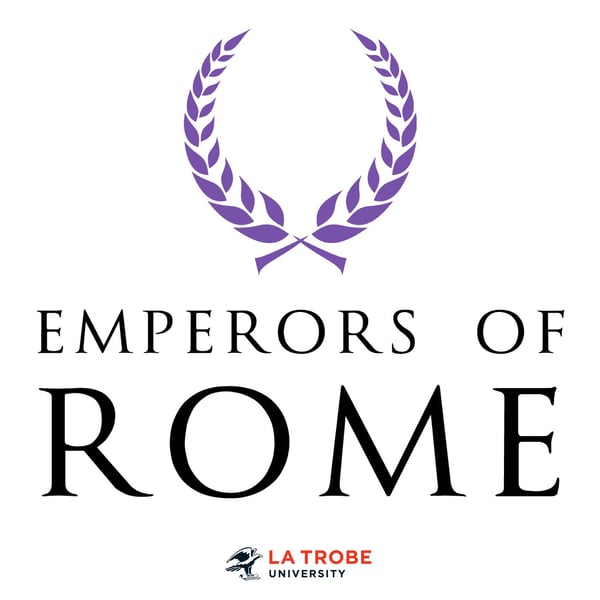Episode CLXXXIII - Philippics
Emperors of Rome
La Trobe University
4.8 • 1.7K Ratings
🗓️ 26 February 2022
⏱️ 43 minutes
🧾️ Download transcript
Summary
As the power struggle in Rome continued and generals waged their war on the battlefield, Cicero took to the floors of the senate, confronting Antony with the greatest weapon in his arsenal: the spoken word. He called his speeches the Philippics, and they were influential in turning the senate against Antony.
Part II of 'The Liberator's War'
Guest: Dr Kathryn Tempest (Reader in Classics and Ancient History, University of Roehampton).
Transcript
Click on a timestamp to play from that location
| 0:00.0 | Arve, and welcome to Emperors of Rome, a Roman history podcast from Latrobe University. |
| 0:11.5 | I'm your host Matt Smith, and with me today is Dr. Catherine Tempest, reader in classics |
| 0:16.6 | and ancient history at the University of Roe Hampton. |
| 0:20.4 | This is episode C-L-X-X-X-I-I, Philippics. |
| 0:26.1 | As the power struggle in Rome continued and generals waged their war on the battlefield, |
| 0:31.0 | Cicero took to the floors of the Senate, confronting Antony with the greatest weapon in his arsenal, |
| 0:35.9 | the spoken word. |
| 0:37.3 | He called his speeches the Philippics, and they were influential in turning the Senate against |
| 0:41.8 | Antony. |
| 0:42.8 | He is Catherine Tempest. |
| 0:44.6 | Broadly speaking, the Philippics are Cicero's contribution to the intense power struggle that |
| 0:50.4 | took place in the wake of Caesar's assassination. |
| 0:53.6 | And specifically, they are the written retords of the speeches he delivered, whether that |
| 0:58.1 | was in the Senate, to the people, or in one case the speech he would like to have delivered, |
| 1:03.0 | but he didn't get the chance to and wrote it up anyway, condemning Mark Antony, who |
| 1:07.8 | Cicero believed was the next great threat to Rome. |
| 1:11.6 | So Cicero saw Mark Antony as an emerging tyrant, a man who, like Caesar before him, was |
| 1:18.2 | a threat to the kind of freedom that underpinned the Roman thinking about their political |
| 1:23.5 | constitution, the Republic. |
| 1:25.4 | It was really in opposition to one man rule. |
| 1:29.7 | And this idea of Antony as a threat to liberty also helps explain the title to the collection, |
| 1:36.5 | Philippic eye. |
... |
Please login to see the full transcript.
Disclaimer: The podcast and artwork embedded on this page are from La Trobe University, and are the property of its owner and not affiliated with or endorsed by Tapesearch.
Generated transcripts are the property of La Trobe University and are distributed freely under the Fair Use doctrine. Transcripts generated by Tapesearch are not guaranteed to be accurate.
Copyright © Tapesearch 2025.

